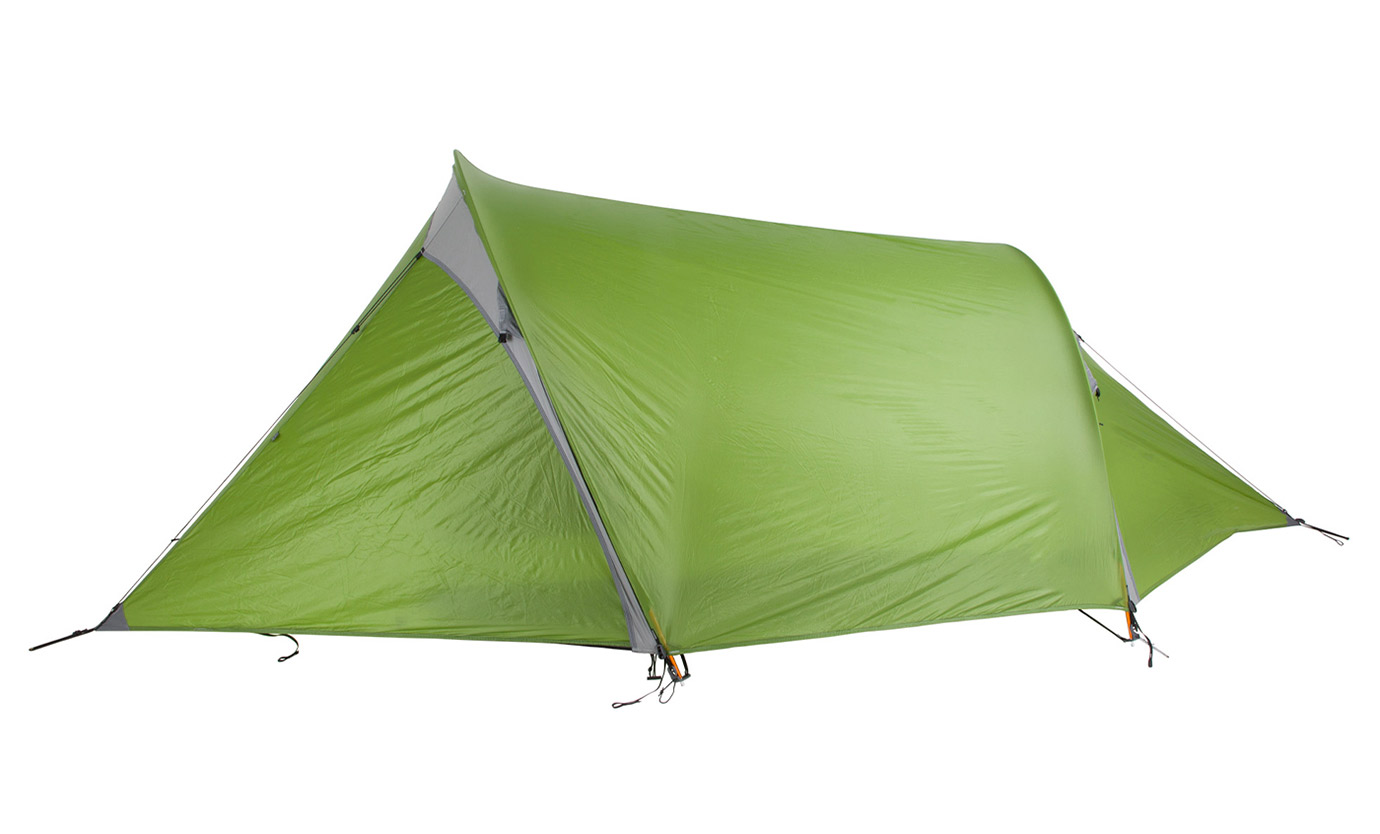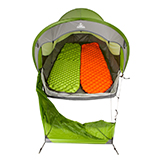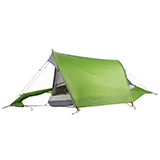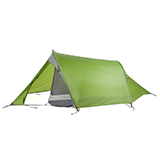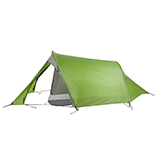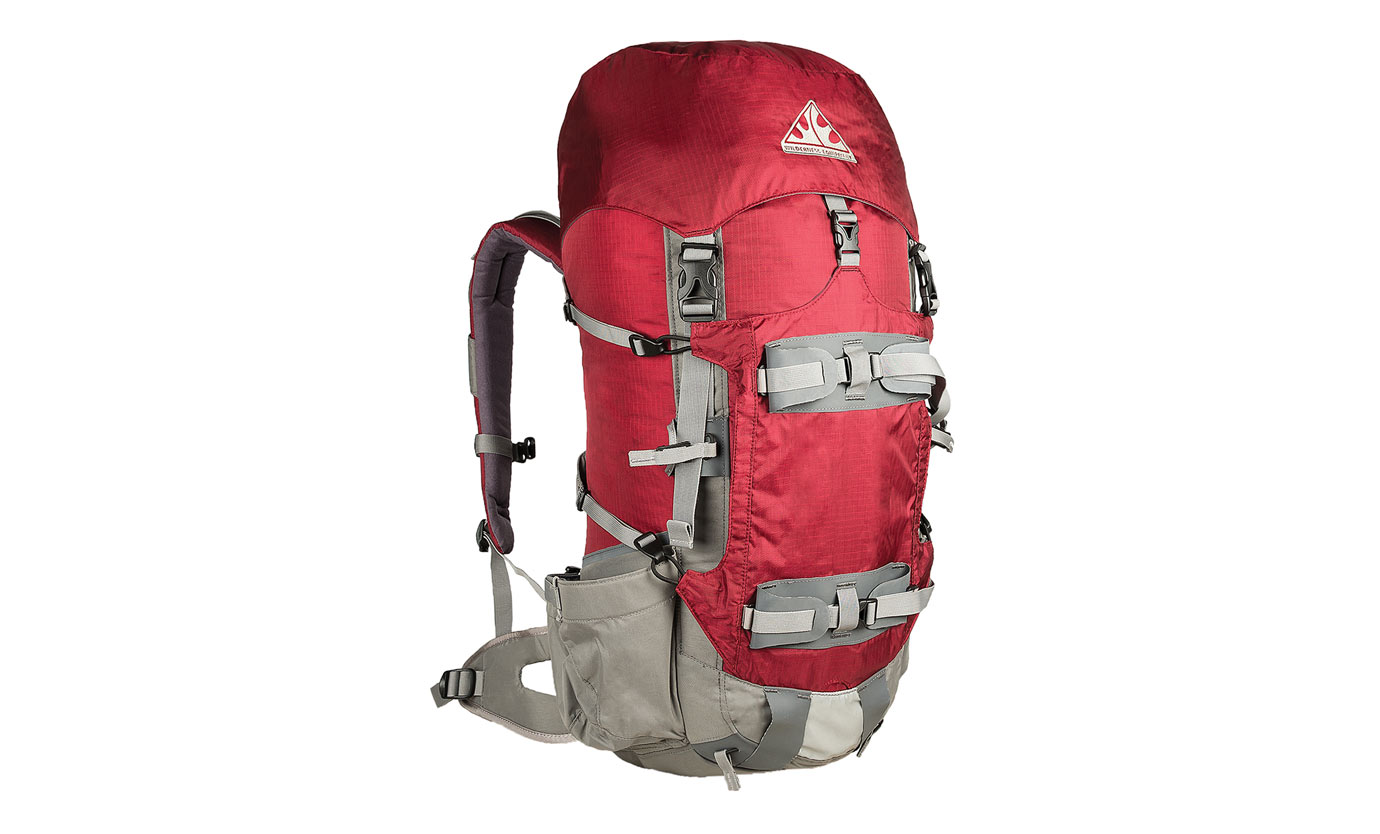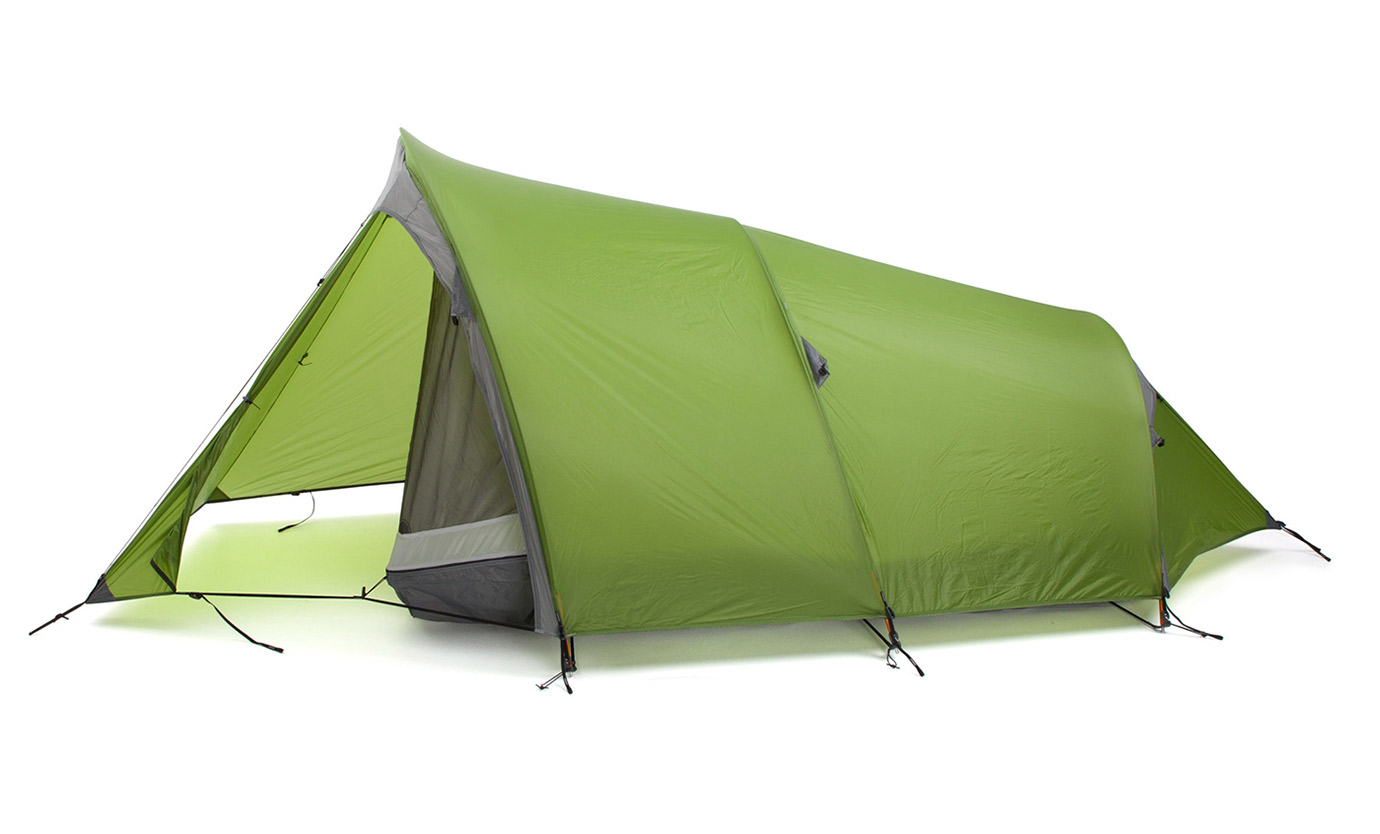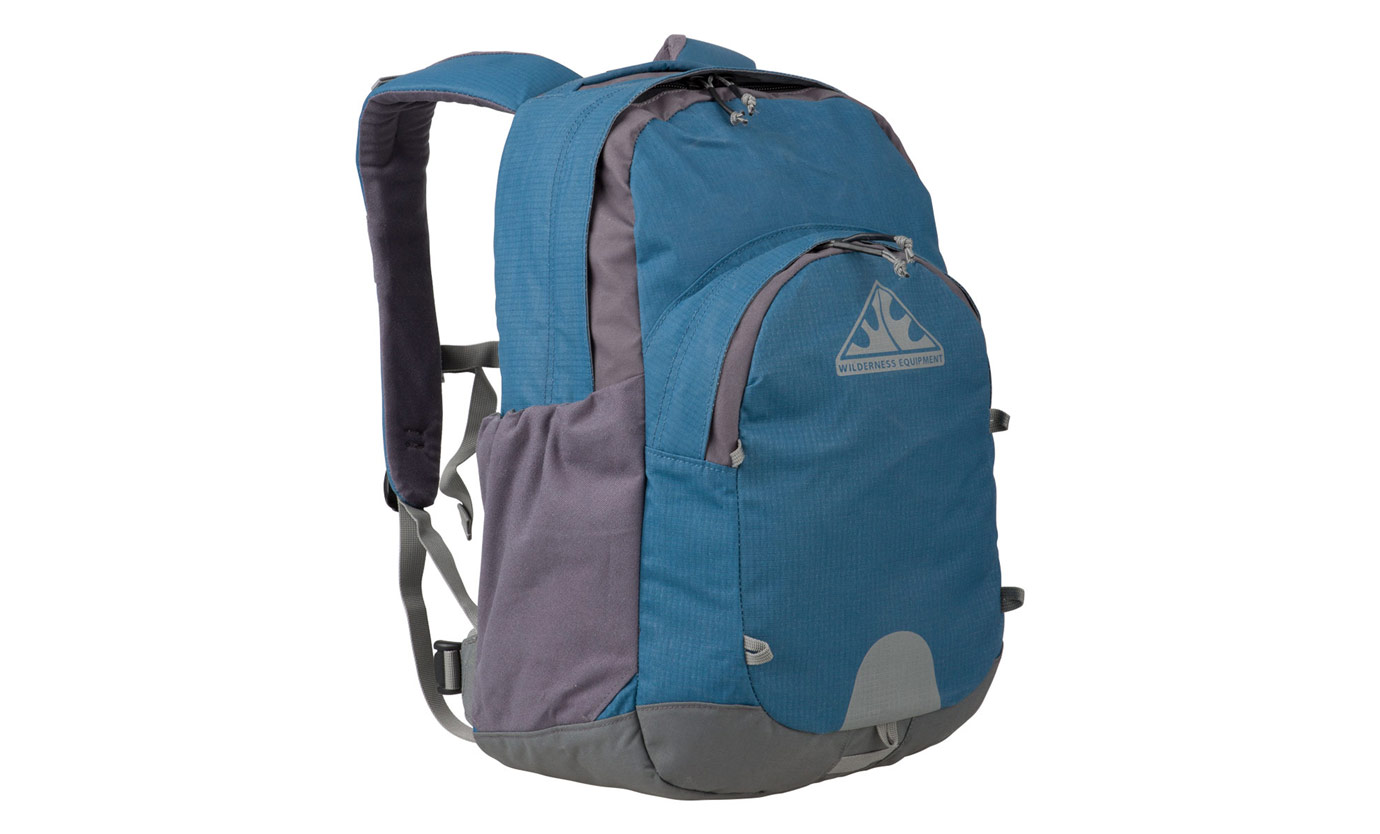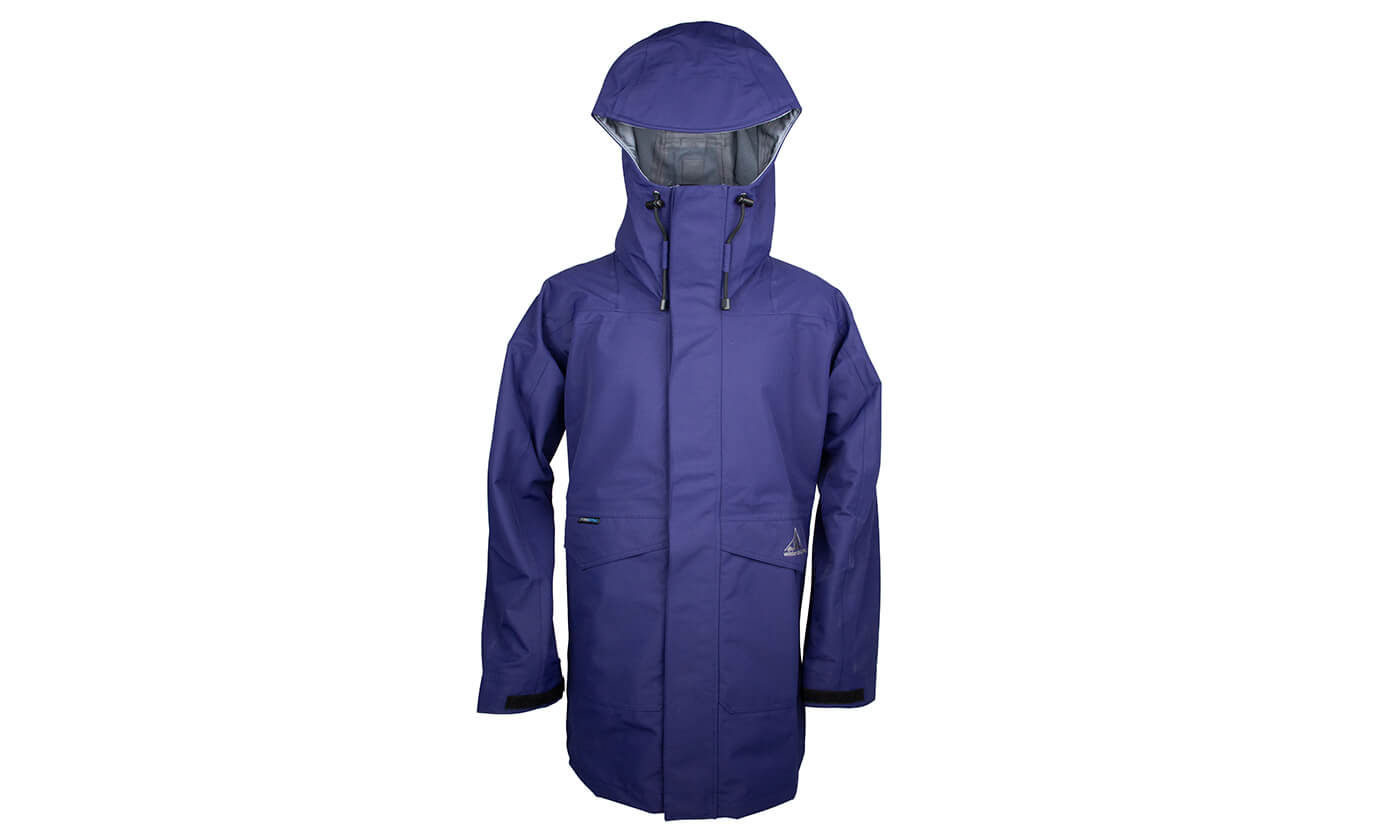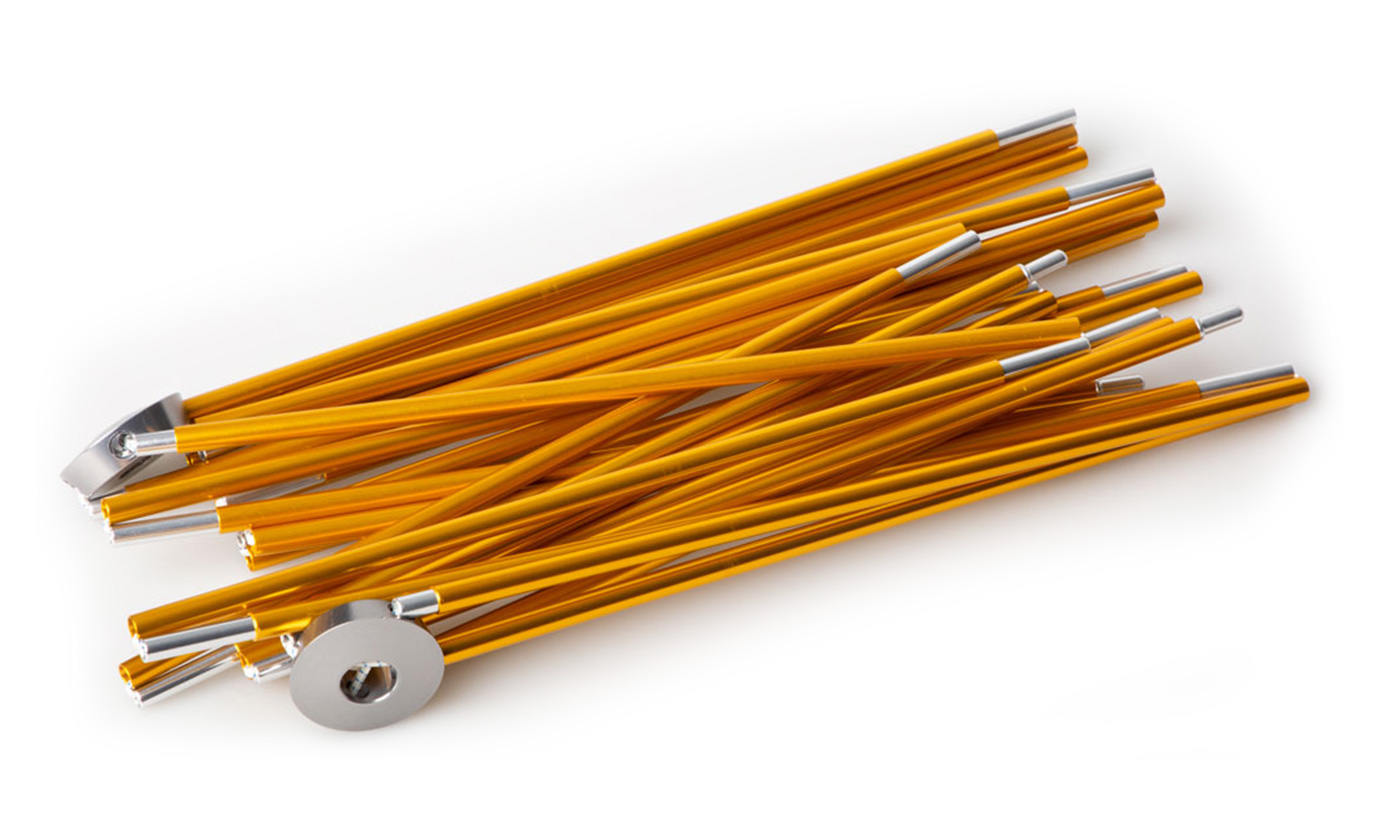- Our Gear
- Shelter
- Expedition Tents
- Second Arrow Ul Green Apple
Second Arrow UL
Green Apple WE04404Nothing has been lost in this scaling-down of our acclaimed First Arrow design. The Second Arrow is a high-tech, compact, 2-person, double-skinned expedition tent for ultra-lightweight travel in snow, across exposed country and in severe weather. It's excellent flow-through ventilation also makes it perfect for summer and tropical use. It is also a perfect solution for solo travellers looking for a roomier tent with 5-season performance. Choose this ?built to be buried? X version when massive snow loads and high alpine exposure are a normal part of your adventures.
-
Features+
- 4+ season, 2-person tapered tunnel tent
- Inner tent length: 215cm. Sit-up height 103cm in working space
- Integral Pitch - poles in outer, inner attaches under outer, outer can be used alone
- Outer tent fabric: Siliconized 30 denier Nylon 6, 3000mm HH sil/sil coating
- Inner tent fabric: Light Grey 20d air-permeable ripstop nylon, Black 15d nylon mesh door screens
- Floor: Deep, unstressed tub, 40d nylon with 5000mm HH PeU coating
- Poles: 2x DAC Featherlite NSL 9mm OD
- Pegs: 7x 4-Flute HT Aluminium , with reflective pull cords
-
Specifications+
-
Doors:
3 -
Floor Area:
2.65m² -
Floor Dimensions:
2.20m (Length) x 1.34m (Widest Width) -
Floor Fabric:
Deep, unstressed tub, 40d nylon with 5000mm HH PeU coating -
Inner Tent Fabric:
Light Grey 20d air-permeable ripstop nylon, Black 15d nylon mesh door screens -
Minimum Weight:
1.66kg -
Number of Pegs:
7 -
Number of Poles:
2 -
Outer Tent Fabric:
Siliconized 30 denier Nylon 6, 3000mm HH sil/sil coating -
Packed Dimensions:
42cm (Length) × 12cm (Diameter) -
Packed Weight:
1.86kg -
Peg Type:
4-Flute HT Aluminium , with reflective pull cords -
People:
3 -
Pole Diameter:
9mm -
Pole Type:
DAC Featherlite NSL -
Seasons:
4+ Extreme Weather -
Vestibule Area:
1.05m²
-
-
Additional Information+
The SECOND ARROW design follows the classic tapered-tunnel, 3-arch First Arrow model. None of the functional advantages or design details of the First Arrow have been lost in scaling down to the SECOND ARROW model. Our design objective was to absolutely minimise weight without compromising the tent's 2-person status.
The choice of high-tenacity, 40d Nylon 6 with 3000mm HH sil/sil coating gives the outer tent the best possible performance and durability, all at reduced weight. Water repellency, snow shedding and UV resistance are all improved with this fabric. Contrary to what might be expected, this light-weight fabric option presents no compromise to the life-expectancy of a properly cared for and maintained tent.
Size
The SECOND ARROW inner tent has good shoulder width for two people and can accommodate two 183cm people stretched out full length. Compared to earlier generations, we have increased the length and the width of the floor, greatly improving internal volume and usable space. The vestibule on the Second Arrow has adequate room for storing footwear, miscellaneous equipment and cooking gear. We generally stow empty packs outside this tent, tied to skis or a tree in high winds.
Architecture
The tapered tunnel shape with its low entry point and sharp 'cut-off' at the high end give the tent an excellent natural stability in high wind coming from or oblique to the small end direction. You will see this low resistance profile in nature where wind is a constant environmental agent, in sand dunes, snow drifts and water waves. Besides great aerodynamics it has other nice consequences when applied to tent design.??The large arch provides working room exactly where it's needed. The tapering shape minimises volume and outer skin surface area, so heat loss and weight are also minimised. The adjustable Second Arrow vent opening, formed by unzipping the vestibule panel down from the top of the main arch, is carefully matched to the eave shape so that ventilation can continue even during steady rain or snowfall. This simple vent provides the best possible still air convective ventilation and a direct exhaust path for cooking vapours rising from the vestibule. Even at low wind speeds the low pressure created over the main vestibule positively sucks air through the tent. In other tents their upper region must flood with warm moist air before the vents start to work. ??In scaling the three-pole First Arrow shape to this two-pole model long spans of unsupported fabric need to be avoided. The distance between the top points of the Second Arrow poles arches is at the limit for a tent intended to resist high winds. The Second Arrow cannot be lengthened! The precise tilts given to the poles arches are there to equalise fabric tension over the outer skin. The Second Arrow has the same wonderful door arrangement and direct access as the First Arrow. Gear stowed under the vestibule does not hinder movement in and out of this tent. The outer door flaps protect the inner well while entering or leaving the tent in rain.
The Second Arrow outer tent in use
Access into the tent (depicted by the red arrows in the top view) is provided both sides of the main pole arch. It is possible to crawl in and out of the small end but openings there are mainly for ventilation. Gear stowed out of the way in the main vestibule is immediately on hand from the inner tent. No need to fall over packs, boots and cooking gear to get in and out. Snow for melting can be stockpiled immediately beside the outer at either entrance. Once you've enjoyed these features other designs don't have much appeal.??Both ends of the outer and inner tents can be unzipped for full ventilation and views. If you wish you can lie in the tent looking out at the stars, the vestibule canopies simply unzip all the way down from the top to lie as a cover over your gear. The zips around the main and small arches are protected by tensioned eaves and are many times stronger than the fabric panels they join to.??Just three pegs are needed to pitch the tent. Six more will fully guy the tent and once in place give the tent a unique combination of stability and energy absorbing flexibility. This built-in flexibility of tunnel tents is crucial to resisting the strongest winds. Rigid frameworks can reach a point of explosive stress. As a result of perfecting the important details of the outer and inner tents it is not possible to simply erect the inner tent on its own. This can only be done with a spiderweb of guys and straps.
Inner Tent Features
The large end of the inner tent has a fully zipped door panel and mesh screen. You can unzip just the screen cover or the entire door panel depending on requirements for ventilation, access to equipment, and so on. The whole wrap-around inner tent front door assembly can be zipped off to either side for open access to the equipment and cooking gear stowed in the vestibule. You can then also easily detach the front end of the floor-pan from the outer tent attachments and pull it back to clear extra ground space for cooking or packing up in bad weather. The inner tent is provided with a lengthwise hanging line and side wall pockets.??The inner tent is suspended by our purpose-built toggles, allowing the inner skin tension to be maintained through changing weather conditions. The angular inner canopy shape results in the best possible, unobstructed clearance and airflow between the two skins of the tent yet there is little compromise to useful inner tent space. You have the option to leave the inner tent attached to the outer tent so it all goes up and comes down as one unit. Otherwise the toggles simply unthread from the nylon loops under the outer skin so the tent layers can be packed and carried separately.
Our unique tub-floor design on the Second Arrow has special advantages. Instead of tub corners being stitched down to ground level the floor pan has simple, unstitched, folded corners. This is possible because the floor pan hangs freely from the attachment points to the outer tent, located well above ground level. A stress-free floor pan improves the life-expectancy of the floor fabric coating in particular. This PU coating on the tough, 100 denier, highly waterproof, nylon fabric we use is light grey in colour. Against the contrasting Red fabric background it is easier to find lost items in the tent, light levels improve on dull days and accidental coating damage is easily identified for repair by liquid sealant application.

